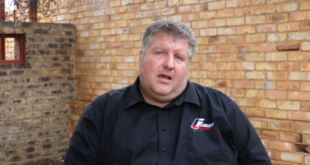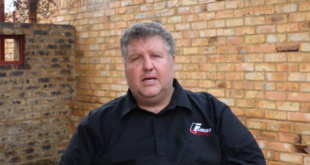In an exclusive interview with Advocate Douglas Shaw, (BSc(Hons) BA(Hum) BA (Open) LLB MLIA(dip) MCP NLP(Mast) and NBCSA member, who has lodged a landmark constitutional challenge against South Africa’s big four banks to the value of R60bn, in a bid to obtain redress for ‘sale in execution’ affected clients as well as judgement on the unfair practice of bank property repossessions, declared unconstitutional, Jason Sole of Mother Channel discusses and reviews Advocate Shaws’ journey over the last few years, since lodging this class action in favour of the average South African consumer who have been taken advantage of through bad banking practices in this country and how it has and still is destroying the very fabric of families, their homes, and lives!
Asked by MC where this all began, Adv. Shaw stated that approximately 5 years ago, some mutual friends brought people to him for legal advice and assistance with repossession of homes by banking institutions, which became more apparent as more people came forward with same complaints. He stated that it is partly a fact that our countries laws are bad and banks are permitted to operate in this manner, whilst other countries are not allowed at all. Twenty years ago when the Constitution came in, the banks knew that the sheriff’s auction system was totally inept at selling properties at market-related prices, however, they continued to use them, despite there being other options available, e.g. accept ‘offers to purchase’ or grant extension to allow owner to sell at a decent price, etc., however, despite the Board bringing proposals to the table, the banks still opposed the idea of being allowed to have a ‘reserve price’, preferring to continue business as usual.
Shaw says since 1994, over a hundred thousand people’s properties have been repossessed and sold off, since the constitution came in, at which point they should have said this is not working we can’t continue with this. Now, in our view, the first time that happened the banks should have said right we can’t go on with this system, it’s obviously wrong we have to develop a new system we have to do something else, which could be selling off through estate agents or fixing up the sheriff’s auction system, however, this did not happen.
“In most parts of the world, when you have to sell a house in execution, you sell it for 90%-95% of its value. In South Africa, the average is 50%-60% or 40% of its value, which often wipes out that person’s whole savings, and then the banks have often got the cheek to come after that person for the shortfall and the bond as well,”
When asked how many clients Adv Shaw was representing in taking the class action forward, he replied that the constitutional court case currently stood at about 220 ongoing, however, in terms of total numbers interviewed it’s over 1000 at this point in time.
In terms of the banking institutions standard quote, ‘we never sell except as a last resort’, it’s simply not true, and they have been saying this for years. Adv Shaw refers to Standard Bank’s CEO, Sim Tshabalala who appeared on TV after the constitutional court hearing and was quoted as saying the bank regarded eviction of clients from their homes as a last resort…etc., which Shaw followed up with an open letter, questioning whether there was any merit in Tshabalala’s claim, read more here: http://www.acts.co.za/news/blog/2017/08/open-letter-to-standard-bank-ceo-sim-tshabalala, to which Standard Bank’s Legal department responded advising they would not agree to Adv Shaw’s proposal as laid out in the open letter.
In summary, and in response to Jason’s question, ‘What is the hope for any recovery at all, if any, on this matter? Shaw states as follows:
We believe;
• the banks’ actions in destroying these people’s lives have been unconstitutional, referring to the basic law of ‘delict’* in SA.
*(The delictual inquiry ” is, in fact, a loss-allocation exercise, the principles, and rules of which are set out in the law of delict.” The classic remedy for a delict is compensation: a claim of damages for the harm caused.)
• because of that negligence, the bank is liable to pay back each one of these hundred thousand people the damage, the difference between what the property was worth and what the property was sold for, or the amount of the bond.
• the banks’ basic position is they can be as negligent as they want as long as they have a court order, however, in terms of constitutional values that cannot be the case, said Advocate Shaw. In basic terms, the court order process is as follows: First, Judgement – for funds, Second, Execution – sale of property and a later court order for Eviction.
Read more on this topic – Health impacts due to financial stress, the risk for existing bondholders, including a current update with ‘Where-To-From-Here’?
Join and/or Support this cause…..
So that we can come together as South Africans and the Banks,
To design a better system of ‘Sale & Execution’ in Good Faith
For All!
Contact: www.bankinglawadvisor.co.za
To join: http://www.bankinglawadvisor.co.za/join/
 Mother Channel Environmental, climate change news and media.
Mother Channel Environmental, climate change news and media.



